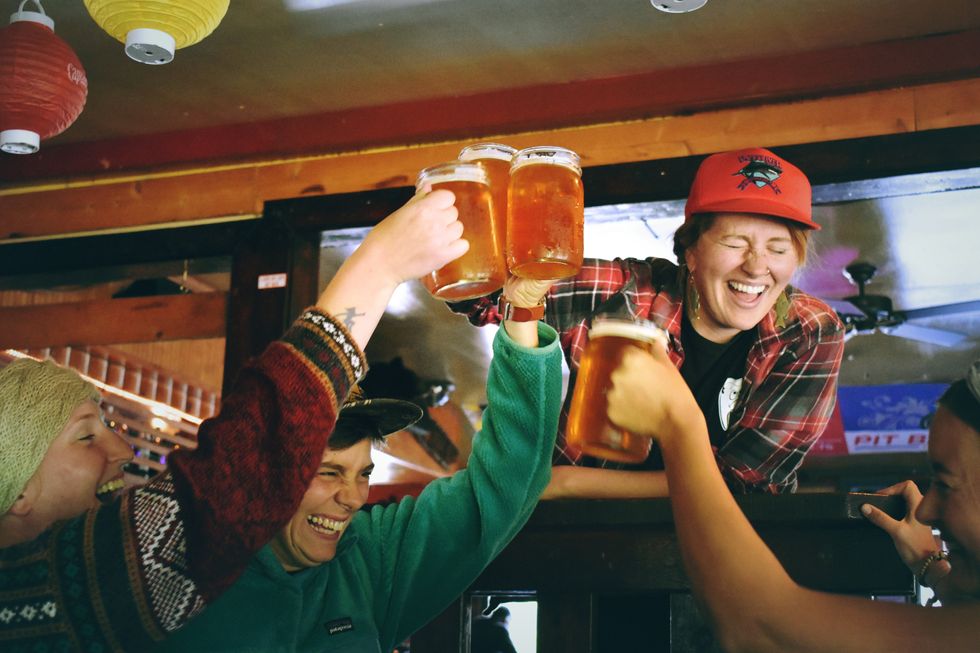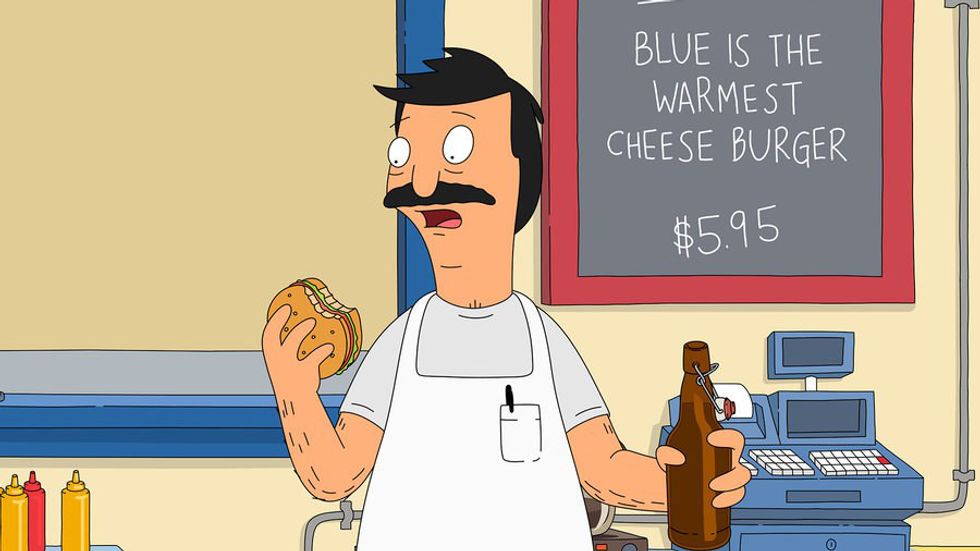Alcohol: the most easily accessible drug.
A legal drug, in fact – that is, if you are over 21. A socially acceptable drug to partake in with coworkers, family members, or even strangers you meet at the bar. Can the same be said for drugs like heroin or cocaine? For whatever reason, alcohol is not only prevalent in today's world, but consuming copious amounts of it regularly isn't even seen as a big deal or cause of concern to most people.
In fact, bragging about how much you can drink is actually a source of pride for many, especially within the young adult college-aged crowd.
I remember my first realization that perhaps alcohol abuse was more rampant than I previously thought during Boston University's Freshman Orientation, when Dean Elmore (bless his soul) and a team of students put on a skit espousing the dangers of drinking too much – and all the RAs in every dorm gave us all a small card with emergency phone numbers and information about alcohol poisoning.
It's a good procedure, I thought to myself as I pinned the emergency card onto the walls of my dorm in Warren. (8B, wsup.) But how prevalent were these alcohol-induced emergencies that beget the need for our own Dean to personally address the issue of alcohol poisoning or peer pressure to a crowd of underage freshmen?
We weren't even allowed to legally drink, and yet here was a presentation from the Dean himself on how 12 oz of beer was equivalent to 5 oz of wine, 8 oz of malt liquor, or 1.5 oz of tequila or vodka. And so on. (If you're interested in learning more about alcohol equivalents, check out this page! It's pretty damn useful.)
The rate of college kids who have embraced binge drinking as a cultural norm is staggeringly high, even in communities unlike Boston who have not yet earned the self-proclaimed title of existing in a "college town."
And when you're living in a college town like Boston? Let's just say, if I were a college kid on the hunt for some alcohol, it was easily obtainable at the next Allston rager. Hell, even if you were in a dorm, you probably had access to a handle or two hidden under your roommate's bed. Let's not pretend like this wasn't totally what happened on a regular basis.
It's problematic because alcohol addiction is very much a real crisis afflicting our communities. Students who binge drink in college can evolve into high-functioning alcoholics who take swigs of the Ciroq hidden under their desk at work in between client meetings.
Let me hammer it home for you: binge drinking is problematic. You are probably more than aware of the short-term repercussions of consuming too much alcohol: blurry speech, vomiting, impaired judgment, blacking out completely, and suffering from a raging hangover the morning after. But many young adults take these symptoms as the expected price to pay after a big party. In other words, these short-term symptoms do little to deter the average college-age student from denouncing alcohol as a dangerous drug completely.
Because once they bounce back and recover, as our young bodies are fully capable of doing, they're already thinking of the next rager or Thirsty Thursday where they can restart the cycle. Rinse and repeat this process the entire year, and you've got your everyday college-aged alcoholic in the making.
What they neglect to realize is the long-term repercussions of consistent binge drinking: the withdrawal symptoms from alcohol, the liver damage, the ulcers, and malnutrition. So maybe not every person who likes to party and unwind on Fridays and Saturdays is an alcoholic. There's nothing wrong with having some fun. But when these dangerous drinking habits become normalized – or even revered – then suddenly the leap to developing a full-blown alcohol addiction later on in life is closer than you realize.
Do you suspect alcoholism in a friend, a family member, or even yourself? Are you able to drink casually without getting to the point of total inebriation, or is it always a slippery slope from taking the first drink of the day before you begin racing towards complete intoxication?
Here are some signs that you – or someone you know – may be addicted to alcohol:
- You've lied or fudged the truth on how much (or how frequent) you drink alcohol.
- You regularly black out when you drink – that is, lose memories after drinking too much and only have a hazy idea of what really happened.
- You seem incapable of limiting yourself to 1-2 drinks; instead, on every occasion you partake in alcohol, you seem to lose control of yourself and go ALL OUT with the amount of alcohol you consume. (In other words, it's never just one beer or one cocktail for the evening.)
- You start to neglect your relationships or responsibilities when they don't involve drinking, like studying for exams or hanging out with your friends who don't drink that frequently.
- You have attempted to quit drinking or at least slow down the pace, but you seemingly can't.
- You drink in situations you aren't supposed to… like driving, during class, or while working.
- You feel emotionally or physically dependent on the alcohol, and experience withdrawal symptoms when it's been a while since you last consumed alcohol. These withdrawal symptoms can be physical (insomnia, sweating, headaches) or even psychological (irritable with others, depressed, unhappy with being sober).
If any of the signs above sound all-too-familiar, remember not to panic. There are plenty of resources for alcoholics to get better and overcome their addiction. If you feel too embarrassed or shameful to admit you have an addiction, going online to find anonymous support groups to help recommend treatment methods can be your first step towards healing. Remember that it's OK to enjoy alcohol – but keep in mind that MODERATION is key. Are you capable of controlling your alcohol consumption? Be honest and candid with yourself, because it's never too late to turn your life around.

































